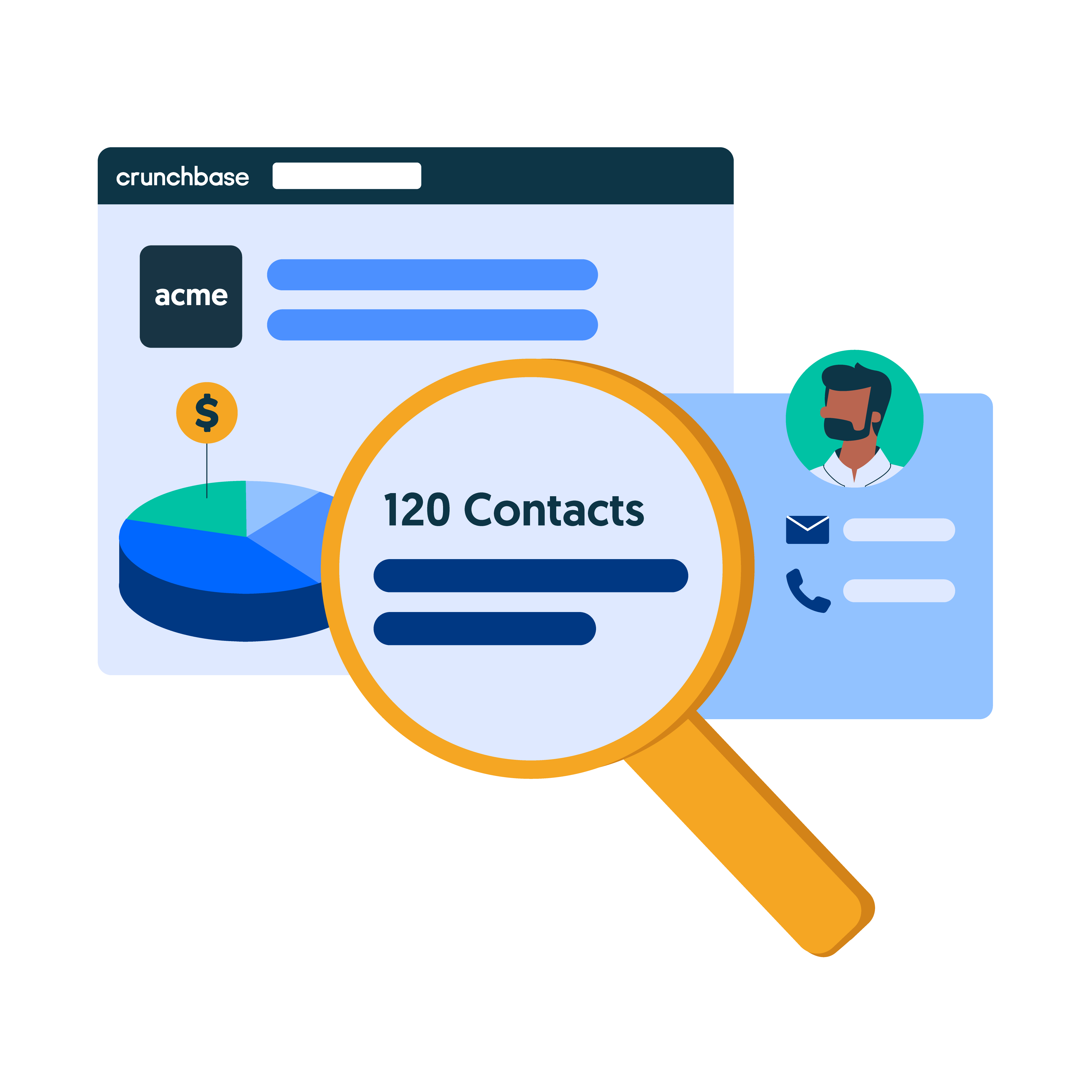Any sales professional knows the words we use to communicate our products and unique selling point can make or break a deal. A large part of a salesperson’s success comes from the vocabulary they use.
Whether it’s in an introductory email, your first face-to-face meeting, or a follow-up video call, the words you choose can make all the difference in how your relationship develops.
You want to present your product or service in the best way possible, establish trust and convey the value of what you’re selling so customers choose you time and time again.
In this article, we’re going to explore some of the words that help you draw in prospects and close deals faster.
What are power words for sales?
When it comes to sales, timing is everything; each word and phrase must be carefully selected and communicated at the right time. Additionally, the words we use to communicate can drastically change the way those on the receiving end choose to respond.
In sales, power words are those that demand the immediate attention of the listener or reader. They’re words that don’t waffle or fence-sit. Instead, they pick a side and move the conversation with forward momentum. Power words are used by sales reps to help inform and persuade a customer about how and what a product will do for them.
10 power words for sales to help you close deals
With that in mind, here are 10 power words that you and your team should use to close more deals.
1. You
Ideally, your clients should be able to imagine themselves using your product or service.
This is where the word “you” plays a powerful role. When you put the people you’re selling to at the center of your conversation, you show that your product is uniquely suited to their needs.
Consider the difference between the headlines “Why power words are helpful for closing deals” and “Why you should use power words to close deals.” The second one is far more difficult to ignore.
The you in the sentence implies your focus on offering them a solution that’s right for their business, rather than one-size-fits-all. It alerts them to the fact that you have a messagethey need to hear.
2. We
The word “we” lets you create the idea of a shared experience, showing your client that you can relate directly to their problems and needs.
It helps build a connection between you and your prospect. The sentence, “We all need to save time in our daily lives,” instantly puts you in a position of empathy with your customers.
When referring to your brand as we, you’re also reinforcing the idea that your entire company is there to help the customer. It’s a constant reminder of your dedication to helping them resolve a problem.
3. Easy
Whatever your product or service, it’s important to assure a lead that what you’re offering can make their lives easier. Your product may be “easy to use” or only require an “easy setup.” If it’s a specific software or feature, you can also talk about how it makes people’s work easier.


4. Opportunity
The word “opportunity” communicates the fact that you’re not just giving customers an option, but an advantage.
You might say something like,”Our CRM platform will increase your retargeting opportunities” or “You have the opportunity to make 3x more sales with our online platform.”
These examples show how the word opportunity can highlight avenues for growth and get customers excited about your product. It also creates a sense of urgency, making customers feel that they’re missing out if they don’t act quickly.
5. Success
Every customer wants your product or service to help them achieve success. For that reason, using the word “success” explicitly is a great way to lead in a sales conversation.
By highlighting your product as a source of tangible value, you can convince prospects that a purchase will yield positive results.
Keep in mind that different customers have different definitions of success, so you’ll need to do your research. Once you clearly identify what success means to a particular prospect, you’ll be able to position your product accordingly.
6. Benefit
When you communicate with prospects, it’s important to educate them on the benefits your product or service can give them. Utilize your business phone system and let them know that what you’re selling is going to help them run their business or manage their personal lives.
The main approach is to make the benefits specific. For example, try, “A benefit of our product is that it makes it simple to manage your business” versus “A benefit of our product is that it saves time for you and your team.”
To describe benefits use terms like simple or easy to highlight that integrating your solution will require little effort. Phrases like “X less/more” and “saves money” can also be incredibly powerful when driving home how your product or service can help your customer.
7. New
In any marketplace, being new has its advantages. Many consumers want to feel that they’re using the hottest, newest and most cutting-edge product available.
When you position a product or feature as being new, you pique the interest of your audience. You also demonstrate that your brand is willing to innovate, improve and evolve to align with industry trends and changing customer needs. Use this when emphasising the benefits of what you’re selling to show how your product is ahead of the competition.
8. Beat
Consumers want to know that the product or service they choose is by far the best on the market. Nobody wants to settle for a product when there is a better one out there.
When you use the word “beat,” you’re instantly showing your customer that your company can offer them just that. But, remember to use market research and metric data to substantiate your claims and show how your product stands out from the rest.
For example, a web conferencing platform may state, “Our application beats out the competition with an industry-leading uptime SLA of 99.9%.”
Or you can use reporting and analytics to show how your product crushes the pain points of your prospects.
9. Best
The word “best” elevates your brand and clearly demonstrates your position in the market and among competitors. For exampe, the statement “Crunchbase provides best-in-class proprietary data” clearly conveys Crunchbase’s authority in the market and is a tangible way to communicate value with prospects.
That said, it’s important that you back up your claims. If you’re using the word best on a sales call, make sure to support it with evidence.
10. Thank you
The words “thank you” go a long way. By thanking potential customers, sales reps show that they appreciate their time and consideration, whether or not they convert.
As a sales rep, try using phrases like:
- “Thank you for your time.”
- “Thank you for listening to my presentation.”
- “Thanks for speaking with me (us).”
- “Thank you for your purchase.”
You can also use other words that convey your gratitude, such as “grateful’” or “appreciate.”
You’re a representation of your brand, so it’s important to leave a positive impression on anyone you communicate with. Whether or not someone chooses to buy, any interaction can have an impact further down the road.
How to use power words for sales
Power words are integral to an effective sales strategy. Conversion success depends not only on if they’re used but how.
Use them naturally
Always use power words in a way that feels organic. Don’t start off a call with “Hi, I’m here to give you success,” because that’s not how people actually speak.
Instead, try something along the lines of “Hi, I’m reaching out to you with a fantastic opportunity.” or “Hey there, I’ve noticed that … (insert problem they may have) … and I think we can help you.” The trick is to incorporate them in the most natural way possible. Make sure your words don’t get in the way of your prospect understanding why you’re getting in touch.
Don’t overdo it
Power words can be captivating and enticing, but not if they appear to be ubiquitous in the message. Imagine a landing page with lines like “This is an easy platform,” “make it easy,” “easy payment,” and “easy returns.”
Overusing power words causes them to lose their impact. Try to vary your word choice to keep your sales conversations sounding natural.
Don’t make stuff up
Never use power words to imply your products and services can do something that’s impossible or unrealistic. If you state something is best or “top-rated,” back it up with facts and data.
Language is the key
At its core, sales is all about communication. The words you choose form your potential customers’ impression of your brand and can make or break a deal. Power words, in particular, are like gravity pulling customers down the sales funnel.
This article is part of the Crunchbase Community Contributor Series. The author is an expert in their field and we are honored to feature and promote their contribution on the Crunchbase blog.
Please note that the author is not employed by Crunchbase and the opinions expressed in this article do not necessarily reflect official views or opinions of Crunchbase, Inc.





